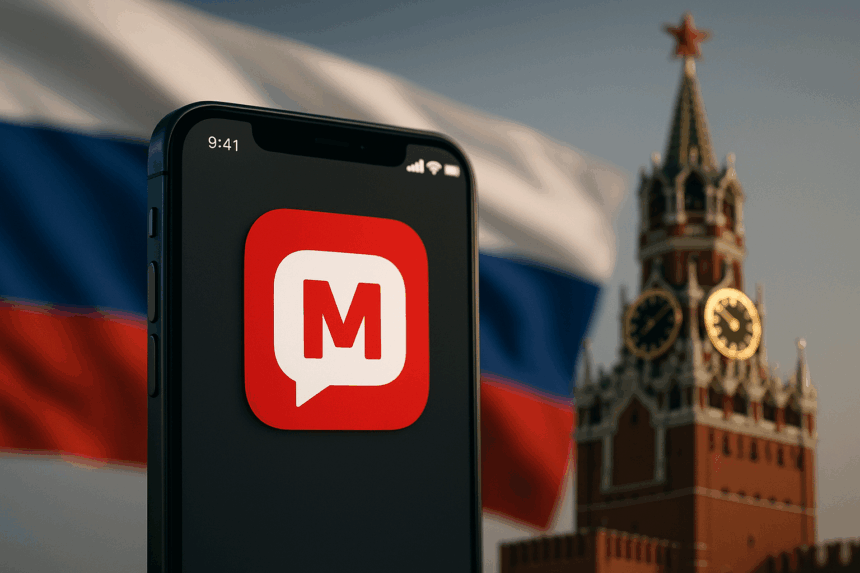The Russian government is forcing a new app, Max, onto every smartphone and tablet sold in the country. This strategic move highlights the focus on the Russian Max messenger. Backed by the Kremlin and developed by VK, this messenger tool looks and functions like China’s WeChat. But its rollout raises deep concerns about surveillance, censorship, and the loss of digital choice in Russia.
What’s Happening & Why This Matters
Starting 1 September, all devices sold in Russia — including iPhones — will come preloaded with the Max messenger app and RuStore, Moscow’s answer to Apple’s App Store. On 1 January, Russian Smart TVs will also receive Lime HD TV, an app that streams free state-run channels. The inclusion of these apps further emphasises the significance of the Max Messenger for government oversight.
Max debuted in March as VK’s replacement for VK Messenger, which had already been required on all Russian devices since 2023. The app lets users send messages, make calls, and transfer money. VK also plans to add travel booking and more features, further tying users to a state-backed digital system with the Max messenger at its core.
According to TASS, Max already claims 18 million registered users, just months after its launch. The Kremlin compares Max to WeChat, the Chinese super app that bundles messaging, payments, social media, and services — all under government oversight. Experts warn that Russia’s intent is similar: promote convenience while expanding surveillance through the Max messenger.
Blocking Alternatives
Moscow is also making it harder for Russians to use foreign apps. Facebook, Instagram, and X are banned outright. Voice calls on WhatsApp and Telegram are restricted under the pretext of “fighting criminals.” WhatsApp has accused Russia of deliberately disrupting access for its 100 million Russian users, which contrasts with the push for adoption of the Max messenger.
Unlike Max, both WhatsApp and Telegram use end-to-end encryption, shielding private conversations from government interception. That privacy safeguard makes them less attractive to Russian regulators. Analysts at the Centre for European Policy Analysis said the government is “harassing Russians into switching to Max” through sustained pressure campaigns that heavily promote the messenger.
State Power and Connections
The leadership behind VK is closely tied to the Kremlin. Current CEO Vladimir Kiriyenko is the son of Sergey Kiriyenko, First Deputy Chief of Staff to President Vladimir Putin. VK’s co-founder, Pavel Durov, also created Telegram but left VK in 2014 after clashing with the state over censorship and user data requests. The development and promotion of the Russian Max messenger are seen as aligned with state interests.
Human Rights Watch researcher Anastasiia Kruope noted that Russia’s ongoing restrictions, combined with heavy promotion of state apps, are nudging citizens into relying on domestic services. “The policy is likely to work, especially if the population is given no choice,” she observed, highlighting the emphasis on the Max messenger in this strategic push.
TF Summary: What’s Next
With Max becoming mandatory, Russia is accelerating its push for a fully state-controlled digital ecosystem. The app’s growing user base suggests that many Russians are accepting, if not embracing, the addition. Yet the lack of alternatives raises red flags for privacy and free expression. In this context, the role of Max messenger is pivotal.
As Max expands with payments, bookings, and media, its path appears destined to rival all-in-one platform WeChat — but with far stricter government oversight. For now, Max represents more than a messaging app. It is a symbol of how Russia is tightening control, communication, and culture digitally. Russia’s Max messenger is at the forefront.
— Text-to-Speech (TTS) provided by gspeech


